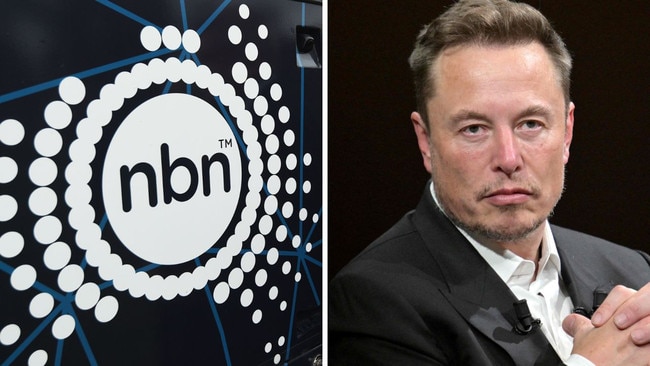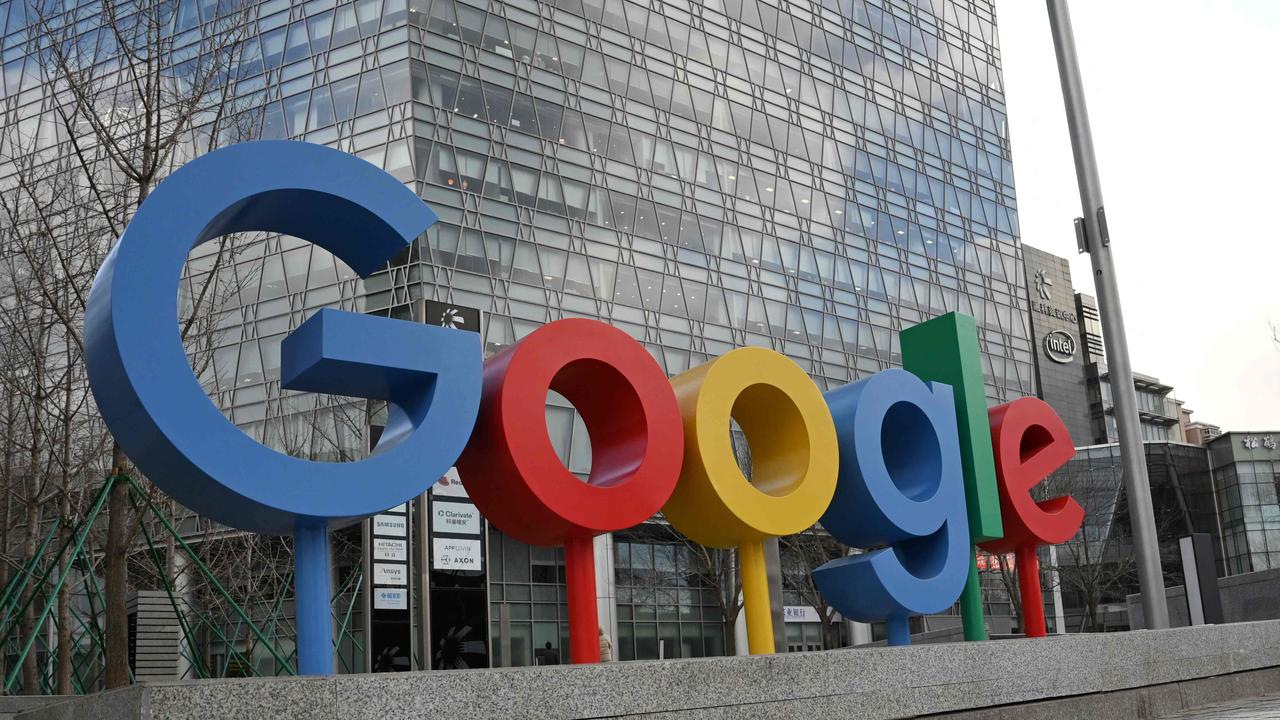Elon Musk’s Starlink blitzes NBN’s ageing Sky Muster satellites in internet speed stakes
The tech titan’s Starlink service has blitzed the NBN’s ageing satellite system in internet speed stakes, heaping more pressure on the $620m taxpayer-funded venture.

Elon Musk’s Starlink has blitzed the National Broadband Network’s ageing satellite system in the internet speed stakes, heaping further pressure on the $620m taxpayer-funded satellite venture that faces an uncertain future.
The Australian Competition & Consumer Commission’s report on Thursday comparing the broadband performance of the two satellite services found that Starlink – the network developed by Mr Musk’s astronautics company SpaceX – significantly outperformed the NBN’s Sky Muster system.
The average latency – the time taken to send data from the user to the server and back again – was 29.8 milliseconds for Starlink services, the report found. That compared with 664.9 milliseconds for Sky Muster’s services.
The reduced latency indicated that Starlink provided a “more reliable experience” than Sky Muster when using real-time applications such as video conferencing and online gaming, the competition watchdog said.
The report also found a stark difference in download speeds. While Starlink recorded an average speed of 192 megabits (Mbps) across all hours, decreasing to 165.5 Mbps during busy weeknight periods, Sky Muster’s maximum plan, which offers its users speeds of up to 100 Mbps, were more than 50 per cent lower.
The NBN’s premium offering notched an average download speed of 83.2 per cent of maximum speeds across all hours, decreasing to 66.1 per cent during busy hours.
Starlink’s array of 4000 satellites, which remain in low orbit, deliver customers much faster speeds as the data transmitted has far less distance to travel.
By contrast, Sky Muster employs two 6.4 tonne geostationary satellites that span 20m and orbit Australia at a much higher altitude. Announced by the Gillard government in 2012, and subsequently launched in 2015 and 2016, the pair of satellites have a lifespan of about 15 years, and are due to be decommissioned in the early 2030s.
The inferior speeds have prompted customers to flee Sky Muster. It services just 84,500 active users, down 108,000 in June 2022. Starlink, meanwhile, has seen its customer base surge, signing up more than 200,000 Australian users since launching in 2021.
Telecommunications heavyweights Telstra and Optus have also signed on to the service, circumventing the NBN, allowing their customers to make calls and access the internet via Starlink’s satellite services.
One benefit of Sky Muster is its lower price point. Its base service, which provides users with download speeds of up to 25 Mbps, costs $64.95 a month, whereas Starlink is priced at $139 a month and requires the purchase of a router, costing $549.
Asked what Labor’s plans were for the future of the Sky Muster service, Communications Minister Michelle Rowland referred The Australian to the NBN.
In a statement, an NBN spokeswoman said it was searching for a replacement broadband service to “best meet the evolving broadband needs of Australia”.
“We are exploring connectivity solutions with low earth orbit satellite providers to understand available technology offerings and assess if they have potential to be a part of the broader NBN satellite road map,” she said.
The Albanese government has established a working group to examine the potential of low-earth orbit satellites, which has recommended a trial of the technology in Indigenous communities.
RMIT engineering associate professor Mark Gregory said as the Sky Muster satellites approached their end of life, Australia had to take up the opportunity to develop a plan. “If [the NBN is] going to get more geosynchronous satellites, they would need to be looking at contracts in the 2025, 2026 timeframe,” he said.
“That’s rapidly approaching.”
He said Australia should not rely on foreign firms – such as SpaceX – to supply its telecommunications. “A telco, a foreign multinational, does two things. One is that they can turn it off if they don’t like you, and Elon Musk has done that to a couple of countries,” he said.



To join the conversation, please log in. Don't have an account? Register
Join the conversation, you are commenting as Logout